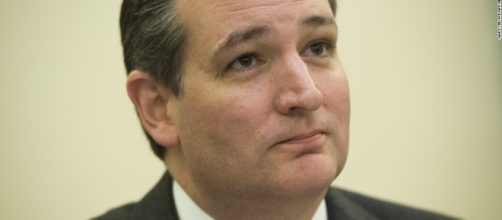Sen Ted Cruz, R-Texas began his hearings on commercial development of space with an eloquent opening statement on how the American frontier was closed in 1890 and that how a new American frontier needed to be opened in space. That frontier would include commercial development and settlement “throughout the galaxy.” It was in that vein that the senator from Texas queried a panel of four commercial space executives about what kind of regulatory and other relief is needed to make such a frontier happen.
Andrew Rush, the CEO of Made in Space, which proposes to use 3D printers to make products in space, suggested that American space-based facilities should be considered United States territory for purposes of imports and exports.
That way companies sending space built products to Earth would not be charged duties of a border adjustment tax.
Robert Bigelow, the CEO of Bigelow Aerospace, suggested that the outer space treaty needs updating, a point made by Cruz in his opening statement. One provision that requires adding would be how much territory would be controlled by a lunar base. Currently, a base on the moon could be “the size of Texas” because of the vagaries of the treaty.
Bigelow is very concerned that China may use that loophole for a land grab on the moon, citing that country’s current behavior in the South China Sea. China could, conceivably, lock up a lot of Lunar South Pole resources based on a provision of the Outer Space Treaty that prohibits interference by one country in another country’s exploration activities.
It could declare the entire lunar South Pole as its base.
The concern that “excessive subsidies” of some commercial space enterprises could choke off competition was expressed by Sen. Gary Peters, D-Michigan. The concern was shared by George Whitesides, Virgin Galactic’s CEO.
Cruz has developed a reputation for being a fiercely partisan politician, as illustrated by the fights he has waged on Obamacare and illegal immigration. But, the senator from Texas is taking a decidedly bi-partisan approach to space policy as chair of the subcommittee that oversees NASA. He has thus been able to pass legislation that authorizes NASA and also loosened regulation of commercial space activities. One provision of a recent commercial space bill allows space mining companies to retain private ownership of minerals they extract from the moon and asteroids.
Of course, Cruz is from Texas, a state that contains a number of commercial space facilities run by SpaceX and Blue Origin, as well as NASA’s Johnson Spaceflight Center, Cruz artfully touched on this fact in his opening statement when he suggested a future in which private people journey into space from launch pads and runways in Texas. By a happy chance, SpaceX is developing a spaceport near Brownsville, and a commercial spaceport is being built at Ellington Field south of Houston.

